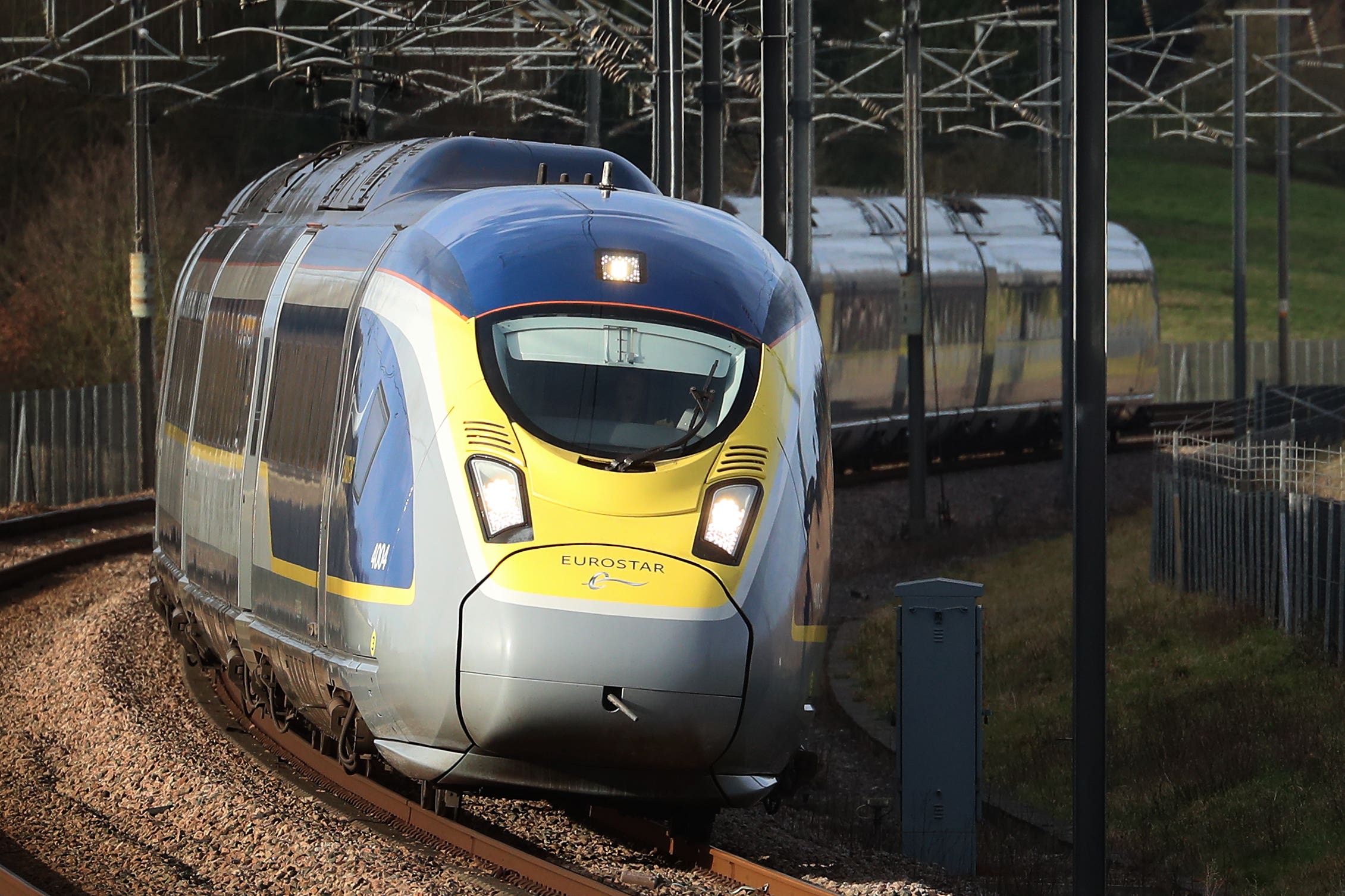‘Savings for passengers’ as lower fees charged to train firms using HS1 line
The Office of Rail and Road announced that the amount paid by operators to use the High Speed 1 line for the five years from April should be cut.

Your support helps us to tell the story
From reproductive rights to climate change to Big Tech, The Independent is on the ground when the story is developing. Whether it's investigating the financials of Elon Musk's pro-Trump PAC or producing our latest documentary, 'The A Word', which shines a light on the American women fighting for reproductive rights, we know how important it is to parse out the facts from the messaging.
At such a critical moment in US history, we need reporters on the ground. Your donation allows us to keep sending journalists to speak to both sides of the story.
The Independent is trusted by Americans across the entire political spectrum. And unlike many other quality news outlets, we choose not to lock Americans out of our reporting and analysis with paywalls. We believe quality journalism should be available to everyone, paid for by those who can afford it.
Your support makes all the difference.Passengers will benefit from train companies being charged lower fees to operate between London St Pancras and the Channel Tunnel, a regulator said.
The Office of Rail and Road (ORR) announced that the amount paid by operators to use the High Speed 1 (HS1) line for the five years from April should be cut by 10.4%.
HS1 is used by Eurostar trains to Paris, Brussels and Amsterdam; domestic Southeastern services between London and Kent, and within Kent; and freight trains heading to and from the Channel Tunnel.
East Midlands Railway trains also run in and out of London St Pancras.
Demand for seats on Eurostar services has soared since the end of coronavirus travel restrictions despite an increase in fares.
HS1 is owned by a group of private investors.
The ORR ordered it to lower access charges after carrying out a review of the company’s latest spending plans.
ORR's view is that better management of the track and station assets can result in lower charges, ultimately benefiting customers
It stated: “The company is being directed to reduce its charges for renewing its track assets and its stations, including St Pancras.
“It must also reduce its charges for its day-to-day operating and maintenance of the railway.
“ORR was able to identify specific areas in the company’s spending plans where further improvements can be made, resulting in savings to passenger and freight train operators.
“ORR’s view is that better management of the track and station assets can result in lower charges, ultimately benefiting customers.”
Feras Alshaker, the ORR’s director for planning and performance, said: “Our thorough, independent review of HS1 Ltd’s spending plans has resulted in significantly lower costs for passenger and freight train operators using the high-speed line from April 2025.
We are pleased to see the ORR’s positive endorsement for our plan for the next five years and we now look forward to seeing how the lower cost to operators drives growth on HS1
“Although, overall, HS1’s original plans were good, the company must now change specific areas of those plans to account for our decisions, which should benefit everyone who uses this railway.”
HS1 Ltd chief strategy and regulation officer Mattias Bjornfors said: “We are pleased to see the ORR’s positive endorsement for our plan for the next five years and we now look forward to seeing how the lower cost to operators drives growth on HS1.
“Our plan for 2025-2030 includes proposals to enhance efficiency and reduce the cost of operating the high-speed line, incorporating innovations like track deterioration modelling to better target renewal investments.
“These innovations have enabled us to propose a 16.5% reduction for operators of international traffic and 11-12% for those handling domestic routes, which we strongly encourage operators to pass on to passengers through more competitive fares or improved services.”